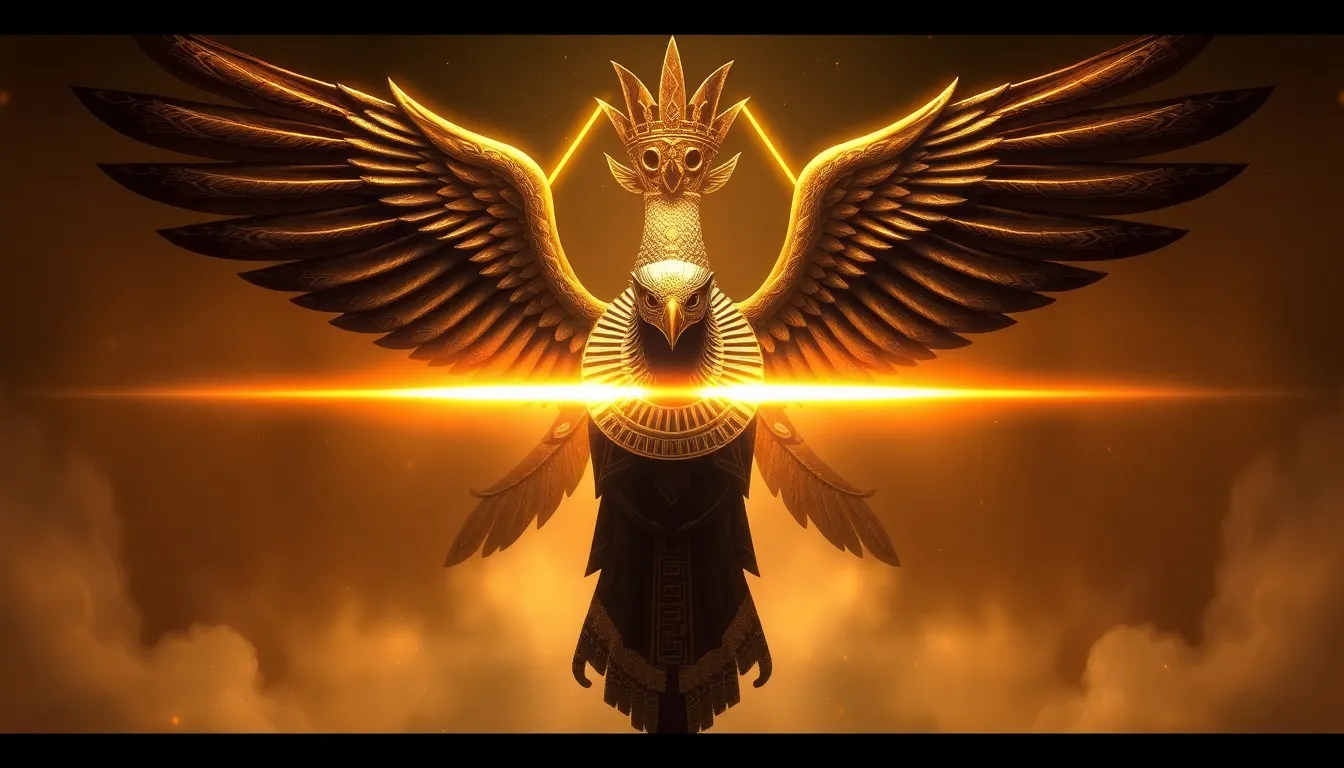The Legend of the Sacred Hawk: Horus and His Divine Role
I. Introduction to Horus
Horus, one of the most significant deities in ancient Egyptian mythology, embodies the essence of kingship and divine protection. Represented as a falcon or a man with a falcon head, Horus symbolizes the sky, power, and authority. His mythology spans thousands of years, intertwining with the lives of pharaohs and the fate of Egypt itself.
The hawk symbolism associated with Horus is vital to understanding his divine role. Hawks were revered in ancient Egypt for their hunting prowess and aerial majesty, representing the sun and the divine. This article delves into the legend of Horus, exploring his historical context, symbolism, and lasting legacy in both ancient and modern cultures.
II. Historical Context of Horus
The origins of the Horus myth can be traced back to the early dynastic period of Egypt, where he was worshipped as a sky god. His myth evolved over time, taking on different forms and attributes as various dynasties rose and fell.
Horus’s narrative is found in several ancient texts, including the Pyramid Texts and the Coffin Texts, which highlight his significance in the afterlife and his role in protecting the pharaohs. Artifacts such as amulets, statues, and temple reliefs depict Horus in various forms, showcasing his importance in both religious and political spheres.
III. The Symbolism of the Hawk
The hawk is a powerful symbol in ancient Egyptian culture, representing divine power and the connection between the heavens and the earth. As a creature of the sky, the hawk embodies the sun’s strength, often associated with the solar deity Ra.
- Attributes of the hawk: Sharp vision, agility, and mastery of flight.
- Connection to the sun: Hawks are often seen as messengers of the gods, soaring high above the earth.
This divine representation made the hawk an ideal symbol for Horus, who was believed to watch over the land and its rulers. His gaze was thought to be a protective force, ensuring the prosperity and stability of Egypt.
IV. The Birth and Life of Horus
The story of Horus’s birth is rich with drama and significance. Born to the goddess Isis and the god Osiris, his life began under tragic circumstances. After Osiris was killed by his brother Seth, Isis fought to protect her son and raise him to reclaim his rightful place.
Horus’s childhood was marked by challenges. He was raised in secrecy to protect him from Seth, who sought to eliminate any threat to his power. This formative period emphasized the themes of protection, resilience, and rightful kingship.
Eventually, Horus confronted Seth in a series of epic battles, symbolizing the struggle between order and chaos. His victory not only avenged his father’s death but also solidified his role as the rightful ruler of Egypt.
V. Horus as a God of Kingship
Horus’s association with pharaohs is a cornerstone of his identity in Egyptian mythology. Every pharaoh was considered the earthly embodiment of Horus, reinforcing the concept of divine kingship.
- Divine kingship: The belief that pharaohs were chosen by the gods to rule.
- Rituals and practices: Ceremonies were held to honor Horus, ensuring the pharaoh’s legitimacy and divine protection.
These practices were vital for maintaining order and stability in ancient Egypt, as the pharaoh’s connection to Horus was believed to secure the favor of the gods and the prosperity of the land.
VI. Horus in Art and Culture
Horus is prominently featured in ancient Egyptian art, depicted in various forms that highlight his attributes and significance. From tomb paintings to temple reliefs, artists captured his essence as a protector and a symbol of kingship.
The influence of Horus extends beyond ancient Egypt, impacting later cultures and religions. His image has been adopted in various forms, representing power and protection throughout history.
In modern times, Horus continues to inspire artists, writers, and filmmakers, serving as a symbol of strength and resilience in contemporary interpretations.
VII. The Legacy of Horus
Horus’s impact on Egyptian religion and mythology is profound. He represents the ideal of kingship, the struggle between good and evil, and the importance of family and loyalty. His legacy is evident in the many references to him in religious texts and practices.
The enduring symbolism of Horus in contemporary society reflects his significance as a protector and a powerful figure. From tattoos to popular culture, the sacred hawk remains a symbol of strength and divine protection.
Understanding Horus’s role helps illuminate the beliefs and values of ancient Egyptians, showcasing their reverence for the divine and the natural world.
VIII. Conclusion
In summary, Horus’s divine role and significance in ancient Egyptian mythology are deeply woven into the fabric of the civilization. His story of birth, struggle, and victory underscores the themes of resilience, protection, and rightful authority.
The continued relevance of the legend of Horus speaks to the timeless nature of his symbolism. The sacred hawk remains a powerful emblem of power and protection, inspiring awe and respect across cultures and eras.
As we reflect on the legacy of Horus, we gain insight into the ancient Egyptian worldview, their reverence for the divine, and the enduring power of mythology in shaping human understanding.




